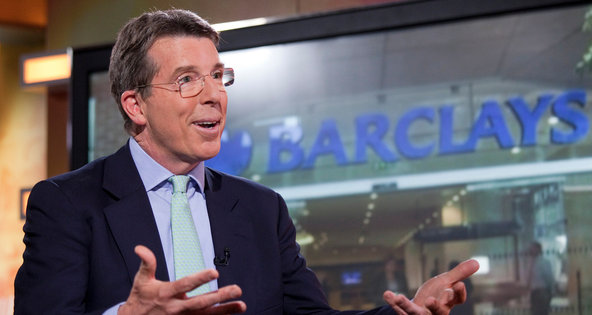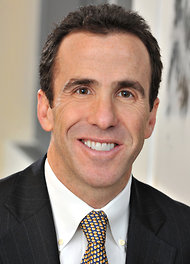 Jerome Favre/Bloomberg NewsRobert E. Diamond Jr., chief of Barclays, said the bank had worked to fix problems and cooperated with the authorities.
Jerome Favre/Bloomberg NewsRobert E. Diamond Jr., chief of Barclays, said the bank had worked to fix problems and cooperated with the authorities.
The Barclays chief executive, Robert E. Diamond Jr., faced a political backlash on Thursday, a day after the British bank agreed to pay more than $450 million to settle accusations that it had attempted to manipulate key interest rates.
Several current and former politicians took aim at Barclays over the matter on Thursday, with some calling for him to resign. The cacophony of criticism comes as Mr. Diamond deals with shareholder opposition about his pay.
“I think the whole management team have got some serious questions to answer,” said Prime Minister David Cameron, speaking at an event in Northern England. “Who was responsible? Who was going to take responsibility? How are they being held accountable?”
The bank’s shares fell 10.6 percent in afternoon trading in London on Thursday.
Barclays is under scrutiny for attempting to influence key benchmarks, including the London interbank offered rate, or Libor, to bolster its own bottom line. Such rates are used to determine the cost for a range of financial products, including mortgages, credit cards and student loans.
 Dave Cross PhotographyDavid Meister, the commission’s enforcement director.
Dave Cross PhotographyDavid Meister, the commission’s enforcement director.
On Wednesday, Barclays struck a deal with the Commodity Futures Trading Commission, the Justice Department and the Financial Services Authority in London, in the first settlement in a sprawling investigation into whether big banks improperly set key interest rates. Mr. Diamond, in a statement on Wednesday, underscored the changes at Barclays, saying “today’s resolutions relate to past actions which fell well short of the standards to which Barclays aspires in the conduct of its business.”
The settlement is also likely to spur reform. As part of the settlement, Barclays agreed to adopt new measures and controls.
On Thursday, the British Bankers’ Association, the trade body that oversees Libor, said it had asked the authorities to review how the interbank rate was set. Until now, the organization had avoided government involvement by conducting its own review into the process, which mainly relies on the world’s largest banks to provide the figures that underpin Libor.
Politicians are pushing for accountability at Barclays. Andrew Tyrie, chairman of the treasury committee for Britain’s House of Commons, said it would summon Mr. Diamond as well as the heads of the Financial Services Authority, the British regulator, to answer questions on the issue sometime in the next four weeks. George Osborne, the chancellor of the Exchequer, similarly wanted answers.
Mr. Diamond, said Mr. Osborne, “has some very serious questions to answer. What did he know, and when did he know it? And who of the Barclays executives knew what was going on?”
“We all want to hear his answers,” Mr. Osborne told Parliament on Thursday. “The story of irresponsibility is not over yet. What happened at Barclays and at other banks is completely unacceptable. It is systemic of the financial industry that put greed above other interests.”
The fallout from the regulatory mess follows an earlier firestorm over executive compensation. Amid mounting criticism from shareholders about excessive pay, Mr. Diamond and other Barclays executives said in April that they would give up some of their annual bonuses if certain profit goals were not met.
Mr. Diamond will now forgo his entire annual payout, announcing on Wednesday that he and others would give up their bonuses in light of the legal issues.
The problems may continue to mount for Barclays. Mr. Osborne, in his speech, said the authorities would continue to look into the matter and were pursuing every avenue open to them. The Labour leader Ed Miliband echoed the need for justice.
“This cannot be about a slap on the wrist, a fine and the forgoing of bonuses. To believe that is the end of the matter would be totally wrong,” Mr. Miliband said in a speech. “When ordinary people break the law, they face charges, prosecution and punishment. We need to know who knew what when, and criminal prosecutions should follow against those who broke the law.”
Some even argued that Mr. Diamond should step down — or that the board should take action.
“If Bob Diamond had a scintilla of shame he would resign,” a former Liberal Democrat Treasury spokesman, Lord Oakeshott, said in an interview with the BBC. “If Barclays’ board had an inch of backbone between them they would sack him.”
Article source: http://dealbook.nytimes.com/2012/06/28/barclays-chief-faces-political-firestorm/?partner=rss&emc=rss